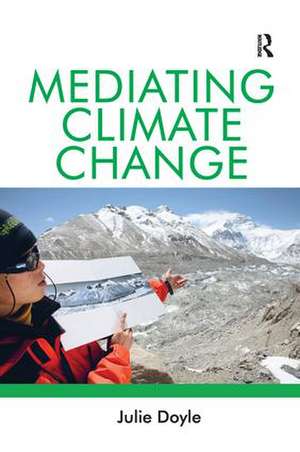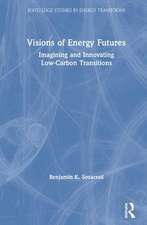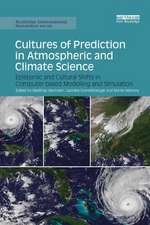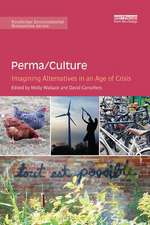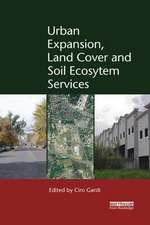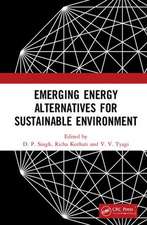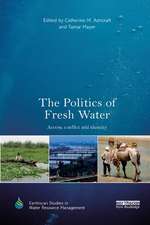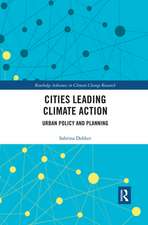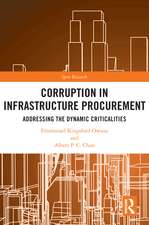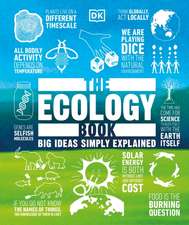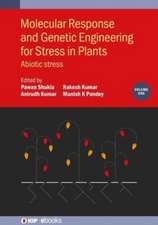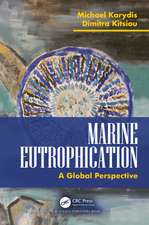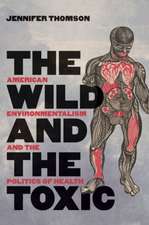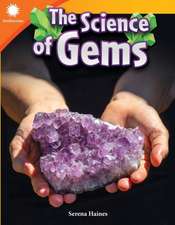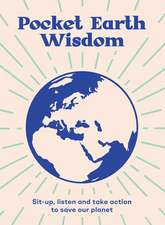Mediating Climate Change
Autor Julie Doyleen Limba Engleză Paperback – 16 noi 2016
| Toate formatele și edițiile | Preț | Express |
|---|---|---|
| Paperback (1) | 455.78 lei 6-8 săpt. | |
| Taylor & Francis – 16 noi 2016 | 455.78 lei 6-8 săpt. | |
| Hardback (1) | 1056.28 lei 6-8 săpt. | |
| Taylor & Francis – 11 aug 2011 | 1056.28 lei 6-8 săpt. |
Preț: 455.78 lei
Nou
Puncte Express: 684
Preț estimativ în valută:
87.22€ • 94.71$ • 73.27£
87.22€ • 94.71$ • 73.27£
Carte tipărită la comandă
Livrare economică 23 aprilie-07 mai
Preluare comenzi: 021 569.72.76
Specificații
ISBN-13: 9781138278516
ISBN-10: 1138278513
Pagini: 200
Dimensiuni: 156 x 234 x 11 mm
Greutate: 0.45 kg
Ediția:1
Editura: Taylor & Francis
Colecția Routledge
Locul publicării:Oxford, United Kingdom
ISBN-10: 1138278513
Pagini: 200
Dimensiuni: 156 x 234 x 11 mm
Greutate: 0.45 kg
Ediția:1
Editura: Taylor & Francis
Colecția Routledge
Locul publicării:Oxford, United Kingdom
Notă biografică
Julie Doyle is Principal Lecturer in Media and Communication Studies at the University of Brighton, UK. She is vice-chair of the Science and Environment Communication Section for ECREA (European Communication Research and Education Association) and was a HEFCE Promising Young Researcher in 2005.
Recenzii
'This is an insightful volume that challenges us to unpack and reconsider ways in which climate change becomes meaningful in our lives. In particular, author Julie Doyle has insightfully explored how imagery shapes our understanding, and how food consumption matters to mitigation efforts. Overall, Doyle has asked novel and productive questions that advance our shared considerations of climate and society.' Maxwell T. Boykoff, University of Colorado-Boulder, USA 'How people think and feel about the idea of climate change influences the way they evaluate and act on the facts of climate change. In Mediating Climate Change, Julie Doyle examines this simple but important proposition and explains why and how this can be. Doyle’s focus on the multiple meanings of climate change, and how these can (dis)empower, is a necessary correction to the inconclusive and tiresome arguments about scientific (un)certainties which plague public debates. In so doing, Mediating Climate Change contributes to a much bigger and more profound project: reconnecting the human faculty of imagination and the material consequences of human action.' Mike Hulme, University of East Anglia, UK '... Doyle makes a very interesting contribution... taken as a whole I have no doubt that, for everyone who is interested in how climate change has been made culturally meaningful, Mediating Climate Change will prove an essential read... the intricacies of her analysis are captivating, and she undoubtedly puts forward some unique and interesting insights about how western society has come to understand, visualize, and act upon the issue of climate change.' Environment and Planning C: Government and Policy '... an eclectic look at various contemporary mediations on climate change... There is much of value in this book on purely academic grounds. Doyle argues persuasively that climate change communication in its various forms is indebted to visual discourse, and that the dominant visual forms (namely graphs, c
Cuprins
Making Climate Change Meaningful; Part I Historicising/Theorising Climate Change; Chapter 1 Problematising Science and Environment; Chapter 2 Visualising Climate Change; Chapter 3 Coda; Part II Mediating/Addressing Climate Change; Chapter 4 An Emerging Climate Movement; Chapter 5 Mediating Copenhagen; Chapter 6 Sustainable Consumption?; Chapter 7 Imaginative Engagements; Chapter 101 Epilogue Positive Action in a Changing Climate;
Descriere
Mediating Climate Change explores how practices of mediation and visualisation shape how we think about, address and act upon climate change. Through historical and contemporary case studies drawn from science, media, politics and culture, Doyle identifies the representational problems climate change poses for public and political debate. She explores how climate change can be made more meaningful and calls for a more nuanced understanding of human-environmental relations.
